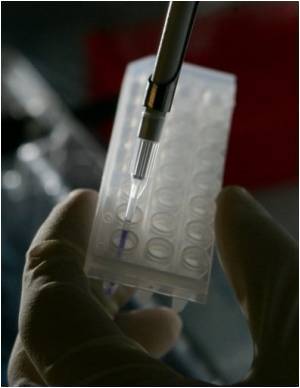
This collaboration agreement not only allows pathologists from many different countries to participate actively in developing cancer protocols, but also helps better define staging parameters for cancer specimens.
These MOUs bring together three highly regarded groups of medical experts from across the globe, allowing them to more efficiently develop cancer protocols that are more likely to receive widespread adoption. This agreement aims to further improve cancer data information for research and comparison and raise reporting standards internationally. This landmark collaboration holds benefits in cancer diagnosis and treatment for both patients and specialists.
Since 1986, the CAP has been publishing cancer reporting guidelines, which later evolved into cancer protocols, as a resource to pathologists for reporting surgical pathology findings.
"Currently, the use of cancer protocols continues to challenge all pathologists in cancer centers. Our goal is to leverage this new level of international collaboration to overcome this challenge," said Stephen N. Bauer, MD, FCAP, president of the CAP. "Our focus is on enhancing and changing the face of cancer reporting through our collective ideas and resources. Going forward, our ability to share, store, and work with health information in a variety of systems will accelerate progress in countless ways."
The RCPA determined collaboration would make sense to economize efforts and increase potential results. Based on the work and commitment to excellence of both organizations, collaboration with the CAP was logical.
"This MOU formally recognizes the important collaboration we are undertaking with our pathology colleagues in North America. It represents a significant step forward in ensuring that the pathology report for every cancer patient around the world is standardized to the same high level of detailed information and in the same clear format," said Associate Professor Paul McKenzie, MB BS, FRCPA, president of RCPA.
Advertisement
"The pathologist plays a central and critical role in providing patients with the best care possible. We are involved in every step of the patient''s cancer journey, from screening and prevention through diagnosis and prognosis, treatment, cure, and palliative care," said Laurette Geldenhuys, MD, CAP-ACP president. "Having cancer protocols that continue to evolve and reflect Canadian and international expertise, and are responsive to new advances in personalized medicine are crucial to better patient care and the best possible outcomes for our patients."
Advertisement
Dr. Bauer added, "When all reports are designed consistently, containing clear headlines that identify the diagnosis right up top, when the language is clear, and the page uniformly formatted, it is easier for busy physicians to find what they need. The effort we make to refine and synthesize information in our pathology reports fosters progress in patient care, research, and public health. We are delighted with this spirit of collaboration and its importance to international quality patient care."
About the Canadian Association of Pathologists (CAP-ACP)
The Canadian Association of Pathologists (Association canadienne des pathologistes), is the national voice of Canadian pathologists. Founded in 1949, it is a voluntary professional organization that advances the interests of the profession and promotes high quality standards for patient care by providing national leadership and promoting excellence in pathology and laboratory medicine practice, education and research. For more information about the CAP-ACP, visit www.cap-acp.org.
About the College of American Pathologists (CAP)
The College of American Pathologists is a medical society that serves more than 17,000 physician members and the laboratory community throughout the world. It is the world''s largest association composed exclusively of board certified pathologists and is widely recognized as the leader in laboratory quality management. The CAP is an advocate for high-quality and cost-effective patient care. More information about the CAP can be found at www.cap.org.
About the Royal College of Pathologists of Australasia (RCPA)
The RCPA is the leading organization representing pathologists in Australia, and includes the territories of New Zealand, Hong Kong, Malaysia, and Singapore. Its mission is to train and support pathologists and improve the use of pathology testing to achieve better health care. Additional information about RCPA is available at http://www.rcpa.edu.au//about.htm.
Source-Newswise














